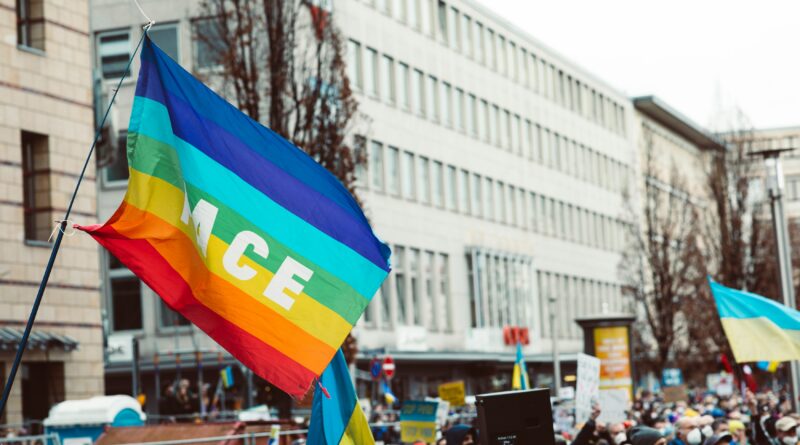Five defining themes for the upcoming European Parliament
The imminent European elections have been described as a “crucial moment” for Europe, given the widespread economic discontent and international geopolitical tensions.
Between 6 and 9 June 2024, EU citizens will go to the polls to elect their representatives to the European Parliament – the world’s only multinational parliament and the only EU institutions directly elected by citizens – for a five-year mandate.
According to the latest Eurobarometer survey, there is more interest in these elections than past ones and a key reason is the international situation. Priorities for voters are the fight against poverty and social exclusion (33%), public health (32%), the economy, EU defence and security (31%) and climate change (27%), the survey shows.
What will be the key (and most controversial) themes the European Parliament will deal with in the next five years?
1. The economy
Shaken by the pandemic, the energy crisis and the war in neighbouring Ukraine, the economic situation will remain at the top of the EU agenda. The recovery fund, an unprecedented €800 billion financial programme agreed in 2020 to help EU countries overcome the economic shock of the lockdowns, will come to an end in 2026 and there are no clues yet on what will happen next.
There is talk of a new economic plan based on updated single market rules. A recent report by former Italian Prime Minister Enrico Letta suggests greater integration in sectors including telecommunications, health and rail transport. It also proposes adding knowledge, covering research, education and innovation in support of the digital economy, to the four existing EU freedoms – the free movement of people, goods, services and capital.
Another report on the single market reform by former European Central Bank president Mario Draghi is expected after the elections.
2. European defence
The war in Ukraine and upcoming US elections in November have prompted a discussion on the development of a European defence and security policy.
Most of the manifestos by European political parties – which group national parties sharing the same ideology – suggest the EU should boost the defence industry and increase member states cooperation. The exceptions are parties on the left of the political spectrum.
A key question is whether EU countries will be prepared to take joint debt to support the programme.
3. The next EU enlargement
There are currently ten countries aspiring to EU membership: six in the Western Balkans (Albania, Bosnia and Herzegovina, Kosovo, North Macedonia, Montenegro and Serbia), Turkey (with which accession talks are suspended), and the most recent applicants Ukraine, Moldova and Georgia.
Montenegro, Albania and North Macedonia are the closest to accession and could potentially join the EU by 2030. An expanded bloc is likely to make the current rule of unanimity in the EU Council (which represents national governments) unworkable, prompting a debate on how to make decisions in the future.
The incoming right-wing Dutch government is cautious about further enlargement and has said it may seek to restrict free movement of people if a larger EU is on the cards.
4. Climate change and the environment
This parliamentary term has been defined by the European Green Deal, a package of laws to green all economic sectors and address climate change.
These policies, ranging from support for electric cars to a massive building renovation programme, will now have to be applied at the national level.
Further policies are expected on clean energy, including to reduce dependence on imports, but action to protect the natural environment may slow down under the pressure of farmers, according to experts.
Climate change and its impacts are likely to remain high on the EU agenda, however, not least because Europe is warming faster than other continents, according to the EU Earth observation programme Copernicus.
5. Immigration and asylum
After years of wrangles, on 14 May 2024 the EU Council completed a landmark reform of the bloc’s asylum and migration system.
New measures include a quick screening procedure at the EU’s external borders to assess the safety risk of people travelling irregularly before they are allowed to enter the EU and apply for asylum.
The reform introduces a ‘solidarity mechanism’ among EU member states involving relocations, financial contributions or other support to countries that face the most arrivals. The package includes faster returns to the countries of origin for people who do not qualify for asylum or cannot stay through other means.
Human rights organisations including the International Rescue Committee have criticised the reform for being at risk of increasing “the vulnerability of displaced people” and leading to longer times in detention centres.
Member states have two years to put the laws into practice. But Polish Prime Minister Donald Tusk has already said his country will not comply. Hungary also voted against, and the incoming Dutch government intends to opt out. So it is possible that the asylum reform will unravel again.
Claudia Delpero, Europe Street News © all rights reserved
This article is published in cooperation with El Ibérico, French Morning London, Londra Italia, Londynek and Ziarul Românesc as part of a public information project about the European elections funded by the European Parliament office in London.
Photo by Markus Spiske on Unsplash
Europe Street News is a news service on the European Union and citizens’ rights. We are fully independent and we are committed to providing factual, accurate and reliable information. As citizens’ rights are at the core of democracy, our website and newsletter are free to read. Please consider making a contribution of your choice using this link or the menu below so we can continue and expand our coverage. We are always happy to hear your suggestions and ideas for improvement. Thank you!




